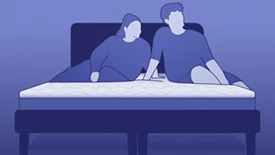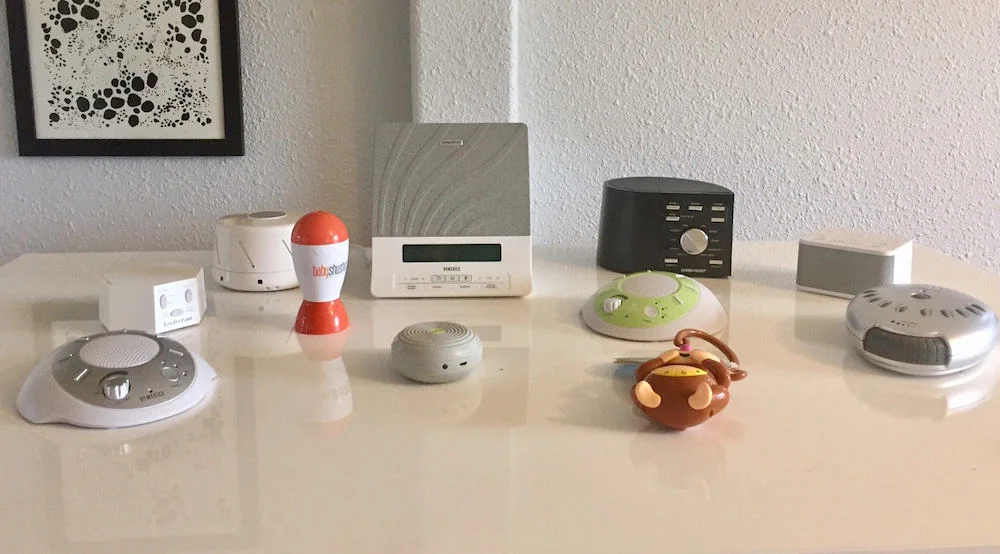
As new parents, it can be challenging to ascertain the best approach for your child, as each child develops and learns at their own pace. However, one universally recognized factor is the significance of naps for every child (especially since no one wants to be left with a cranky and fussy baby).
A recent study conducted at the University of East Anglia reveals that an increased frequency of naps in children may result in a smaller vocabulary and a reduced development of vital cognitive skills. (1) This goes way beyond the anxiety of choosing the right kids’ mattress.
In the study, researchers gathered 463 babies, who ranged in age from three months old to eight months old. Parents were asked to look specifically at their children’s sleep patterns, ability to retain information and focus, and their processing of certain words and pronunciation. (1)
The results of the study revealed that babies who were better at consolidating information did not need as many naps throughout the day. On the other hand, babies who needed that extra nap time struggled to retain words and had slower cognitive function.
Even though the results of the study indicated this, researchers said parents should not go straight to the solution of shortening their babies’ naps.
“There is a lot of parental anxiety around sleep,” Dr Teodora Gliga, the lead researcher said in the study. “Parents worry that their kids don’t nap as much as expected for their age – or nap too frequently and for too long.” (1)
For now, resist the urge to eliminate nap time for your children under the assumption that it will enhance their cognitive abilities. In fact, Gliga advises the opposite approach, encouraging you to allow them to nap naturally and for as long as they need.
“Young children will naturally nap for as long as they need and they should be allowed to do just that,” she said.
Are you still worried about how much your child is napping? Don’t worry, that’s why we brought in an expert.
An Expert Weighs In
Is nap time another concern you need to add to your plate as a parent? After all, it is a pretty significant aspect of your baby’s lifestyle you need to pay close attention to, according to Courtney Zentz, the CEO and founder of Tiny Transitions Sleep Consulting.
She said that how much sleep a baby gets can make a huge difference in their cognitive development and the strength of their memory.
“When a baby isn’t getting the right amount of sleep at the right time, even at a young age, it can almost immediately be seen in their attention span and how well they are learning—your brain records when you are awake and edits when you sleep,” she told Sleepopolis.
She said that when a baby constantly oversleeps during the day, their bedtime and overnight sleep will not be aligned the way it should be. This could lead to a crying baby waking you up more early than you would like.
On the other hand, a baby who isn’t sleeping at night or is overstimulated can cause their sleep cycle to become disrupted. Zentz explained the typical assumption of keeping a baby up all day so they could fall asleep fast at night is something you should not listen to as a parent.
“You only need so much sleep, but the key is that it needs to be properly spaced throughout the day to balance their age and developmental needs,” she said.
If you’re a little nervous over your baby’s sleeping habits, Zentz says to pay attention to their sleeping habits (you can use an app or go the old-fashioned way of taking note via pen and paper). Monitoring your baby’s schedule for a few weeks might help you pick up on any patterns or an underlying sleep problem, according to Zentz.
“If a baby is consistently sleeping significantly more or less than the average for their age, is having difficulty falling asleep or staying asleep, or appears unusually fussy or lethargic even after napping, these are all signs to speak with [your] pediatrician,” she says.
Zentz also noted that if you notice your baby napping for a little too long, you may want to wake them up. Don’t worry, she had a reason for this.
“The goal for many parents is optimal growth through milk intake in year one,” she said. “It’s also to help a baby sleep through the night as they are ready, typically between 3 months old and six months old.”
So how long should nap time and bedtime be before waking them? Zentz says that at birth a baby should be awake for 45 to 60 minutes before going to bed to prevent overstimulation.
Once they get to nine months old, a baby should be waking up between 6 a.m. and 7 a.m. Babies should be in bed by 7 p.m.
Planning for nap time? There should be two a day at this age, including one at 10 a.m. and another between 2 p.m. and 3 p.m with a wakeup of 4 p.m. so they reach the ideal level of the sleep ‘pressure’ hormone known as adenosine.
Even though you don’t want to deal with the kicks and screams of a baby that just woke up, it’s crucial you follow a set sleeping schedule to ensure they get adjusted. Sleep is crucial for a baby’s health so make sure to constantly look out for any inconsistencies.

Best Mattresses for Kids (2026): Bedtime Made Better with Our Top Picks

Best Night Lights You Can Buy Online

13 Sleep Tips for Kids From Parents Who Have Been There

Best White Noise Sound Machines for Sleeping
Sources
Zentz, Courtney. Personal Interview. August 3, 2024.
1. Gliga T, Hendry A, Kong SP, et al. What Nap Times reveal about your child’s brain development. ScienceDaily. July 27, 2024. https://www.sciencedaily.com/releases/2023/07/230728113321.htm.


























